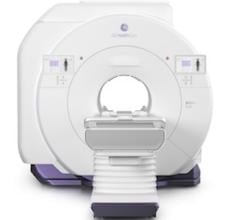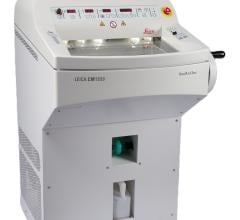
May 31, 2017 — Siemens Healthineers and the Fraunhofer Institute for Medical Image Computing MEVIS announced the formation of a new research alliance to develop decision support systems for physicians based on deep machine learning. The partners will discuss their joint efforts at the German Radiology Congress, May 24-27 in Leipzig, Germany.
The cooperation contracts for the project, planned to run for four years, were signed recently. Through this collaboration, the partners want to strengthen the bond between their research activities. The aim is not only to develop intelligent decision support systems for clinically relevant problems, but also establish them on the market successfully.
Today, most of the information in clinics and medical practices is stored digitally. Until now image data, findings, lab values, digital patient records and surgery reports are handled separately. However, there is a current trend aimed at gathering this information in one unified software framework. This data integration enables faster handling of medical information and lays the foundation for more efficient interaction between different specialties and to enable more precise and personalized clinical decisions. It also promises added value: New self-learning computer algorithms can detect hidden patterns in the data and give physicians valuable support for their diagnosis and therapy decisions.
“When it comes to detecting relevant patterns and correlations in complex data volumes, computers are now better than humans,” said Horst Hahn, director of Fraunhofer MEVIS. “This does not mean, however, that computers will make therapy decisions. They will simply support doctors with database-driven knowledge,” he emphasized.
Based on comprehensive databases, the research partners will develop software systems that support clinicians in finding the best possible course of therapy. The work focuses on tumor diseases, such as lung cancer, for which physicians have to determine the necessity of a biopsy, a procedure known to be stressful for patients. The systems of Fraunhofer MEVIS and Siemens Healthineers would support physicians’ decisions in the future. The goal is to let the software display all the information that could be relevant for decision-making. A physician would not have to gather information from separate sources, saving valuable time. Additionally, the guidelines of medical specialist societies will be integrated automatically, providing physicians with valuable support. Ultimately, the algorithms will link the case at hand with a comprehensive database. Which methods have provided the greatest benefit in similar cases? Does a nuclear medicine method such as positron emission tomography (PET)/computed tomography (CT) make more sense than a biopsy?
Most of all, the new system will help determine the best possible course of therapy. It will enable physicians with different specialties to access one central system to view all relevant information, including e.g. X-ray and magnetic resonance (MR) images, tissue analyses, genetic parameters, lab values and important data from the patient’s medical history. Computer programs will search for patterns in comprehensive databases that could deliver helpful insight into the case at hand: Did surgery outperform radiation therapy in similar cases? Does an ongoing course of chemotherapy bring the anticipated success, or should it be ceased? The partners already have elementary access to necessary reference databases, but much will be developed and completed after the project commences.
For more information: www.mevis.fraunhofer.de


 February 20, 2026
February 20, 2026 









